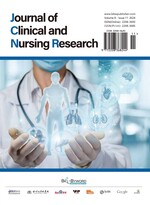Abstract
Objective: To investigate the effects of exosomes derived from human umbilical cord mesenchymal stem cells (hUC-MSC) on the proliferation and invasion capacities of uterine fibroblast cells. Methods: Exosomes were isolated from the hUC-MSC culture medium via ultracentrifugation. The morphology, particle size, and surface markers of the hUC-MSC-derived exosomes (hUC-MSC-exo) were characterized using transmission electron microscopy (TEM), nanoparticle tracking analysis (NTA), and Western blotting. The impact of the exosomes on uterine fibroblast proliferation and invasion was assessed using the CCK-8 proliferation assay and Transwell invasion assays. Results: The exosomes exhibited a typical bilayer membrane structure with a diameter of 100–150 nm, and their average particle size was approximately 130 nm. The zeta potential was around -33 mV. Specific exosome markers, including CD9, TSG101, and CD63, were prominently expressed. Functionally, hUC-MSC-exo significantly inhibited the proliferation and invasion of uterine fibroblast cells. Conclusion: This study reveals the inhibitory effects of hUC-MSC-derived exosomes on uterine fibroblast proliferation and invasion, highlighting their potential therapeutic value. These findings provide new insights into the mechanisms underlying uterine scarring and suggest novel approaches for pharmacological treatment.
References
Carbonnel M, Pirtea P, de Ziegler D, et al., 2021, Uterine Factors in Recurrent Pregnancy Losses. Fertil Steril, 115(3): 538–545. https://doi.org/10.1016/j.fertnstert.2020.12.003
Murji A, Sanders AP, Monteiro I, et al., 2022, Cesarean Scar Defects and Abnormal Uterine Bleeding: A Systematic Review and Meta-Analysis. Fertil Steril, 118(4): 758–766. https://doi.org/10.1016/j.fertnstert.2022.06.031
Debras E, Capmas P, Maudot C, et al., 2024, Uterine Wound Healing After Caesarean Section: A Systematic Review. Eur J Obstet Gynecol Reprod Biol, 296: 83–90. https://doi.org/10.1016/j.ejogrb.2024.02.045
Xia W, Wang Q, Liu M, et al., 2023, Antifouling and Injectable Granular Hydrogel for the Prevention of Postoperative Intrauterine Adhesion. ACS Appl Mater Interfaces, 15(38): 44676–44688. https://doi.org/10.1021/acsami.3c07846
Morlando M, Conte A, Schiattarella A, 2023, Reproductive Outcome After Cesarean Scar Pregnancy. Best Pract Res Clin Obstet Gynaecol, 91: 102362. https://doi.org/10.1016/j.bpobgyn.2023.102362
Rodríguez-Eguren A, Gómez-Álvarez M, Francés-Herrero E, et al., 2022, Human Umbilical Cord-Based Therapeutics: Stem Cells and Blood Derivatives for Female Reproductive Medicine. Int J Mol Sci, 23(24): 15942. https://doi.org/10.3390/ijms232415942
Zhang J, Qu X, Li J, et al., 2022, Tissue Sheet Engineered Using Human Umbilical Cord-Derived Mesenchymal Stem Cells Improves Diabetic Wound Healing. Int J Mol Sci, 23(20): 12697. https://doi.org/10.3390/ijms232012697
Moroncini G, Paolini C, Orlando F, et al., 2018, Mesenchymal Stromal Cells From Human Umbilical Cord Prevent The Development of Lung Fibrosis in Immunocompetent Mice. PLoS One, 13(6): e0196048. https://doi.org/10.1371/journal.pone.0196048
Lin F, Chen W, Zhou J, et al., 2022, Mesenchymal Stem Cells Protect Against Ferroptosis via Exosome-Mediated Stabilization of SLC7A11 in Acute Liver Injury. Cell Death Dis, 13(3): 271. https://doi.org/10.1038/s41419-022-04708-w
Lin Y, Yan M, Bai Z, et al., 2022, Huc-MSC-Derived Exosomes Modified with The Targeting Peptide of aHSCs for Liver Fibrosis Therapy. J Nanobiotechnology, 20(1): 432. https://doi.org/10.1186/s12951-022-01636-x
Aliakbari F, Marzookian K, Parsafar S, et al., 2024, The Impact of hUC MSC-Derived Exosome-Nanoliposome Hybrids on α-Synuclein Fibrillation and Neurotoxicity. Sci Adv, 10(14): eadl3406. https://doi.org/10.1126/sciadv.adl3406
Hassanzadeh A, Shomali N, Kamrani A, et al., 2024, Detailed Role of Mesenchymal Stem Cell (MSC)-Derived Exosome Therapy in Cardiac Diseases. EXCLI J, 23: 401–420. https://doi.org/10.17179/excli2023-6538
Qian Z, Zhang X, Huang J, et al., 2024, ROS-Responsive MSC-Derived Exosome Mimetics Carrying MHY1485 Alleviate Renal Ischemia Reperfusion Injury through Multiple Mechanisms. ACS Omega, 9(23): 24853–24863. https://doi.org/10.1021/acsomega.4c01624
Muraoka A, Suzuki M, Hamaguchi T, et al., 2023, Fusobacterium Infection Facilitates The Development of Endometriosis Through The Phenotypic Transition of Endometrial Fibroblasts. Sci Transl Med, 15(700): eadd1531. https://doi.org/10.1126/scitranslmed.add1531
Wang K, Jiang Z, Webster KA, et al., 2017, Enhanced Cardioprotection by Human Endometrium Mesenchymal Stem Cells Driven by Exosomal MicroRNA-21. Stem Cells Transl Med, 6(1): 209–222. https://doi.org/10.5966/sctm.2015-0386
Ma G, Song G, Zou X, et al., 2019, Circulating Plasma MicroRNA Signature for The Diagnosis of Cervical Cancer. Cancer Biomark, 26(4): 491–500. https://doi.org/10.3233/CBM-190256
Yan H, Huang W, Rao J, et al., 2021, miR-21 Regulates Ischemic Neuronal Injury via The p53/Bcl-2/Bax Signaling Pathway. Aging (Albany NY), 13(18): 22242–22255. https://doi.org/10.18632/aging.203530
Sun J, Liao Z, Li Z, et al., 2023, Down-Regulation miR-146a-5p in Schwann Cell-Derived Exosomes Induced Macrophage M1 Polarization by Impairing The Inhibition on TRAF6/NF-κB Pathway After Peripheral Nerve Injury. Exp Neurol, 362: 114295. https://doi.org/10.1016/j.expneurol.2022.114295
Tovar Acero C, Ramírez-Montoya J, Velasco MC, et al., 2022, IL-4, IL-10, CCL2 and TGF-β as Potential Biomarkers for Severity in Plasmodium vivax Malaria. PLoS Negl Trop Dis, 16(9): e0010798. https://doi.org/10.1371/journal.pntd.0010798
Wang D, Na Q, Song GY, et al., 2020, Human Umbilical Cord Mesenchymal Stem Cell-Derived Exosome-Mediated Transfer of MicroRNA-133b Boosts Trophoblast Cell Proliferation, Migration and Invasion in Preeclampsia by Restricting SGK1. Cell Cycle, 19(15): 1869–1883. https://doi.org/10.1080/15384101.2020.1769394
Guo G, Tan Z, Liu Y, et al., 2022, The Therapeutic Potential of Stem Cell-Derived Exosomes in the Ulcerative Colitis and Colorectal Cancer. Stem Cell Res Ther, 13(1): 138. https://doi.org/10.1186/s13287-022-02811-5
